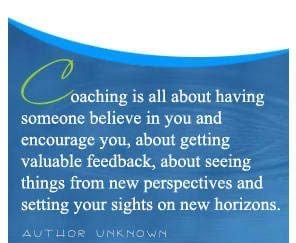May 5, 2021 in Life Coaching
How to Improve Your Self Esteem
“You yourself, as much as anybody in the entire universe, deserve your love and affection” – Gautama Buddha
It's your turn now! Let's support each other by clicking "Helpful".
+1

DISCUSS #Relationship
DISCUSS #Parenting
“You yourself, as much as anybody in the entire universe, deserve your love and affection” – Gautama Buddha
In a recent video blog, I listed five points fundamental for overcoming feelings of unworthiness. The point of this article is to draw your awareness to increase self-esteem.
Those with low self-esteem create a STORY in their minds connected to low self-worth. Let’s be clear – you were born worthy of high self-esteem. One need only look to children to see how self-orientated they are. You didn’t convince your parents to love you when you were young – you were born as an expression of the love they had for one another.
In cases where children are abandoned, there’s a greater spiritual message to gain. I’ve seen such people go on to create wonderful lives for themselves and in doing so impact others along the way. Their abandonment paved the way for their ultimate success as leaders in their community.
There are no accidents in the universe. You may unknowingly perceive them as such. Appreciating the small role you play in the orchestration of the universe, you realise the true meaning of all that transpires in your life is for your highest good.
Add to myWE:
Below is a list of inaccurate beliefs about self-esteem which you may have created as a result of your life’s experiences. Over time you assign them meaning by replaying them in your mind. They serve as a comfortable friend you know all too well. As a result, you adopt them as an aspect of your character. They are:
I will never amount to anything.
I am not worthy of receiving love.
I am not worthy of loving myself.
I am not worthy of loving others.
I am not worthy of being successful.
I am not worthy of receiving money and success.
I am not worthy of receiving.
Such mental chatter modifies the inner landscape of your thoughts by influencing your subconscious mind. Over time you accept these thoughts as fixed beliefs about your identity. It is my aim in writing this article, to advise you how to recognise and change the inner dialogue to a more conducive mental state.
If left unchecked, low self-esteem has a cascade of rippling effects on your life. It creeps up on you and pounces quietly in situations you mightn’t expect. Relationships and career are two principal areas where there’s a direct influence.
You might be involved in a loving relationship only to discover feelings of unworthiness and self-esteem rear their ugly head. These thoughts convince you you’re not good enough to be with this person, or that you cannot meet their romantic expectations. Subsequently, you become embroiled in arguments with your loved one as a result of the mental programmes you accepted.
The hidden meaning behind low self-esteem is the realisation and acceptance of oneself. It is the journey toward unconditional love; despite your insecurities and past mistakes. When you accept and love yourself, you allow others to do the same. You grant permission for others to love you unconditionally. You create a space filled with love, kindness and respect – thus honouring your authentic nature.
The first step toward revealing your unconscious beliefs is via self-examination. It’s worth rendering a caveat that at some stage you may wish to seek assistance and/or guidance from a trained therapist who is well versed in the area. Often there is only so much inner self-examination possible without the help of an outside authority. A trained therapist is able to see aspects of your repressed self that you’re not trained to see.
Self-examination should not be a critical process. You’re not required to cast judgment upon yourself or others – rather it’s looking back through a window in time and merely observing. Observe when the belief relating to your self-esteem began. Was it during childhood, adolescence or adulthood? Who was involved in the scene? Was it a loved one or a respected authority?
Again, observe the main players in the scene and note the feelings that arise. Become aware of where these feelings emanate within your body and ‘be’ with them – don’t fight or resist them. They’re advising you how to yield to them, in order to free yourself from the inaccurate belief you formed.
Personally, I find writing these beliefs on a piece of paper useful during this process. Allow your mind to be at peace by going with whatever comes up. Don’t resist any thoughts that arise. You are not labelling the thoughts at this time – you’re simply a passenger toward your ultimate freedom. Ask yourself whether the belief holds true in your current life?
Some of the beliefs might be framed in the following manner. I have italicised the inaccurate beliefs:
My father used to tell me I would never amount to anything when I did something wrong.
I was never great at sport at school and compared myself to other kids.
My high school teacher told me I was no good at maths and would never get into college.
My mother was always critical of those I chose to socialise with as a teenager. She felt I could do better.
Once you’ve gone through this process, you should note lightness throughout your body – as though you’ve taken a burden off your shoulders. Your job is complete when the thought no longer brings you the pain it previously did. Sometimes you have to dig deeper to uncover the belief which may lay hidden deep within another unconscious belief. Keep digging until you uncover the thought connected to your feelings about it.
The final process is to write a new story relating to the outdated belief. The new story seeks to replace the old belief with an empowering thought story. The unconscious mind readily accepts that which the conscious mind believes with conviction. With that in mind (pardon the pun) make the new story believable so that it will be adopted easily and effortlessly. It’s of little use to create a belief around an unattainable goal or purpose i.e. I am now a multimillionaire.
Below are examples of what the new beliefs might be:
I am open and receptive to love myself deeply and completely. In doing so, I give permission for others to love me the same way.
I have nothing to prove to others, other than to accept myself unconditionally.
No one has the power to reject me.
No one has permission to tell me I am unworthy. It all starts and ends with me
Repeat these statements often until you feel comfortable with them – you’ll know this when you feel powerful energy arising from within. I personally find when affirming a powerful belief, a tingle radiate down my spine.
So to recap – in order to increase self-esteem work through the following principles until the new belief is cemented in your mind:
Undertake regular self-examination of the thought or belief.
Observe the thoughts which arise. Don’t get into a dialogue with them.
Challenge the belief by asking whether the statements are true.
Observe if there’s resistance to the belief you’re challenging.
Note in your body where you feel the resistance.
Create a new set of beliefs that are in harmony with your mind and body.
Be diligent and consistent with the process. In some cases, there’ll be deep buried emotions that you may not want to unearth. They may trigger repressed feelings which you may not wish to face. It is important for this reason that you undertake this process when you’re ready and willing to do the work.
It is comforting to know that once you undertake this process, you’ll no longer be a victim of your past. You’ll have liberated yourself from unhealthy emotions which do nothing to harness your personal growth. Be patient and kind to yourself during the process.
Original article: https://www.tonyfahkry.com/how-to-improve-your-self-esteem/









 Thank you for your help!
Thank you for your help!